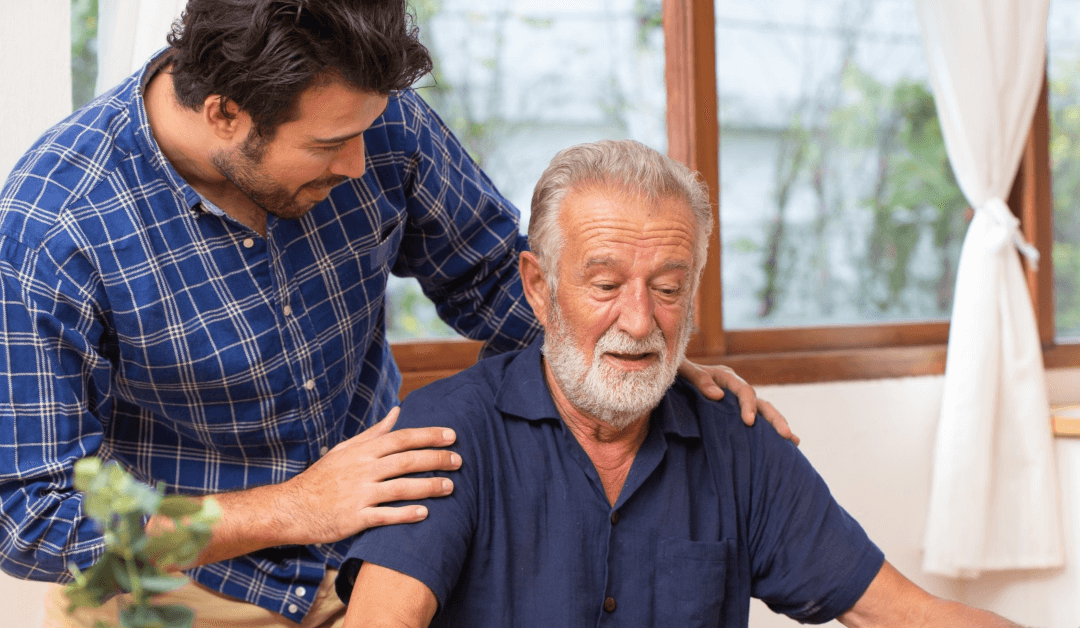Summer is a great time to spend memorable moments with our elderly loved ones. It is also a time to take extra care of them so that they don’t suffer from the summer heat. Though everyone is vulnerable to heat stroke and heat exhaustion, our elderly are even more so. They can show signs of these conditions before younger, healthy adults do so it is necessary to be on guard against heat related health problems much sooner.
Heat stroke prevention with seniors starts with understanding why the elderly are more likely to suffer from heat conditions. Our elderly often have chronic medical problems that affect the body’s ability to adjust to changing heat conditions and ambient temperatures. As people age, it is natural for an otherwise healthy body to lose the ability to adjust responses to normal, seasonal temperature changes. Medications are more often prescribed to seniors that make it difficult for their bodies to perspire to cool off or regulate bodily temperature.
Of all the heat related conditions, heat stroke is the most serious. When it happens, a person’s body can no longer control its temperature. The affected person may have a body temperature of 106 or higher in 15 minutes or less but be unable to sweat to cool down. Permanent disability or death are quite possible if immediate treatment is not given. This is what can happen with anyone but with seniors, it can happen more quickly. For this reason, we need to know what the signs are at the earlier stages and how the deal with them to prevent worsening the condition.
Signs that warn of a possible heat stroke developing include:
- Body temperature exceeding 103°F degrees
- Strong, rapid pulse
- Red, dry, hot skin without sweating
- Throbbing headache
- Nausea
- Dizziness
Even if you are unsure when any of these signs present themselves, one of the best tips is that it is always best to err on the side of caution than to have regrets later. If possible, it is best to stop heat stroke before it gets past the first signs. Elderly heat stroke and heat exhaustion can both be treated but both can be prevented. Heat exhaustion is a heat related condition just as heat stroke is but is not as severe. It may take a few days to develop when our elderly are exposed to a lack of adequate fluid intake and high temperatures. Untreated, heat exhaustion can become a heat stroke so learning how to prevent heat exhaustion helps in elderly heat stroke prevention.
Heat stroke and heat exhaustion have some warning signs in common but some are different. The signs in common include headache, dizziness and nausea. Other signs of heat exhaustion are:
- Paleness
- Tiredness
- Heavy sweating
- Weakness
- Muscle cramps
- Fainting
- Rapid but weak pulse rate
- Skin that is cool and clammy
- Fast, shallow breathing
If you notice any of these signs beginning to show, here are some tips to begin treating it right away so it is stopped before it gets too bad. Encourage your senior loved one to drink plenty of cool beverages but avoid alcoholic drinks. If a doctor has your elderly loved one taking medications such as water pills or other medications that may limit the amount of liquid that can be taken in, find out how much can be safely consumed on hot days. Avoid drinks that are icy cold as they may cause cramping.
Getting plenty of rest and bathing in cool water helps prevent heat related problems. Clothing should be light weight and strenuous activity should be avoided during the hottest part of the day. Staying inside where it is air conditioned during the hotter part of the day is among the best ways to help with elderly heat stroke prevention along with other heat related health issues.
Summer can be the best time of the year for our elderly or it can be one of the worst times. If we keep watch, we can help make it the best time of year for our loved ones. If you want more information on how you can help make life more pleasant for your elderly family members, let us at the Small ALF Coalition know and we will be glad to help you. Please feel free to call us at 813-857-2551 or click here.

